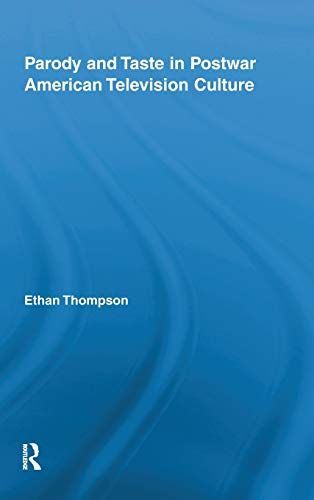
Parody and Taste in Postwar American Television Culture
In this original study, Thompson explores the complicated relationships between Americans and television during the 1950s, as seen and effected through popular humor. Parody and Taste in Postwar American Television Culture documents how Americans grew accustomed to understanding politics, current events, and popular culture through comedy that is simultaneously critical, commercial, and funny. Along with the rapid growth of television in the 1950s, an explosion of satire and parody took place across a wide field of American culture—in magazines, comic books, film, comedy albums, and on television itself. Taken together, these case studies don’t just analyze and theorize the production and consumption of parody and television, but force us to revisit and revise our notions of postwar "consensus" culture as well.